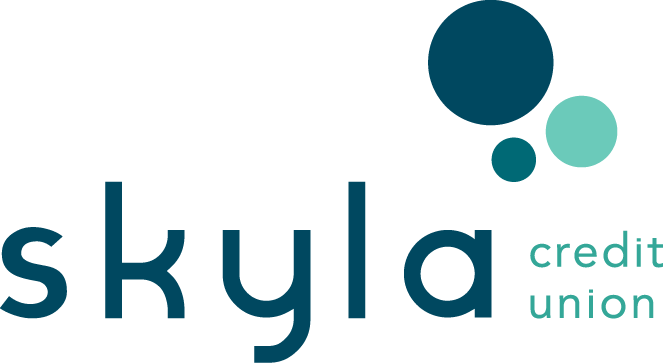How to Protect Yourself from Fraud
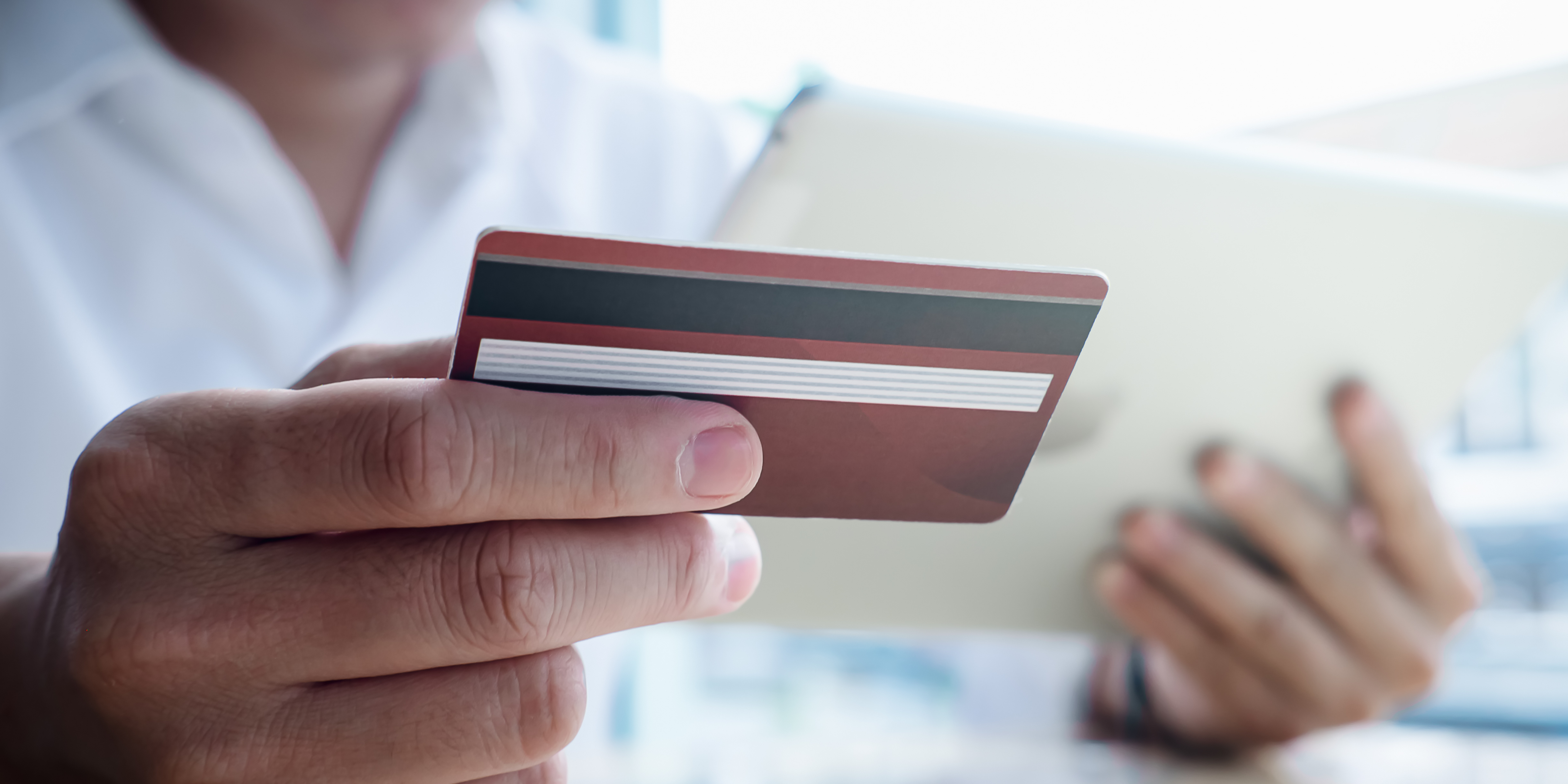
Imagine belonging to a financial institution that has safeguards in place to protect money and other assets from fraud, and your account still has fraud. Isn't that infuriating?
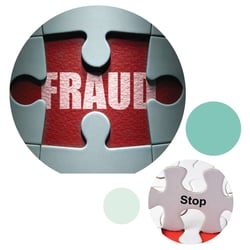
I hate to be the bearer of bad news, but you can't solely rely on your financial institutions to protect your money from fraud. Even though all financial institutions have tools and protocols in place, you also need to practice safeguarding your personal information to protect your accounts. It’s important to remember not all financial institutions have the same safeguards in place, and fraudsters may be smarter than you think.
That's why I created this article for you! I'm going to share ways you can protect yourself from fraud and have your financial institution's security services in place, so you’re double - and triple - protected.
here’s a closer look at what we’ll cover
|
|
 so... what exactly is fraud?
so... what exactly is fraud?
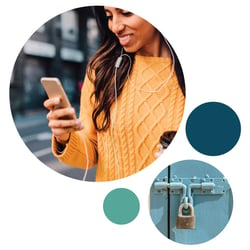 Fraud is a broad category and isn't always tied to money. It’s a deliberate and deceitful action with the intention of obtaining an unauthorized benefit for oneself. That’s a fancy way of saying someone wants to steal the info you have for their personal gain.
Fraud is a broad category and isn't always tied to money. It’s a deliberate and deceitful action with the intention of obtaining an unauthorized benefit for oneself. That’s a fancy way of saying someone wants to steal the info you have for their personal gain.
In the financial world, fraud occurs when money or other assets are taken from a person (the victim) through deception or criminal activity. A typical example of financial fraud is when the victim is unfamiliar with charges or purchases on their credit card or bank statements. A person who is guilty of fraudulent activity is called a “Fraudster,” and fraudulent activity can be executed by one person or multiple people, or a business, so it's essential to take extreme precautions when safeguarding your money.
 what are the common types of fraud?
what are the common types of fraud?
identity theft:
A fraudster will steal your personal information to commit fraud. The thief could use your personal information to apply for new loans that can potentially ruin your credit status and cost you tons of dollars to restore your name if not caught in time. Anyone – even kids - can be a victim of identity theft. Read up on the tips from the Federal Trade Commission (FTC) to help protect you from identity theft.
Psst... Think you might be the victim of identity theft? Act quickly to limit the damage. The Federal Trade Commission has created step-by-step instructions on how to handle the process of recovering from identity theft. Get help from the FTC |
phishing:
 This is the fraudulent practice of a thief posing as a reputable company to contact you to steal personal info. Phishing attempts typically happen over email, but it’s also possible for a fraudster to call you on the phone and pose as a company employee. If you answer an email, direct message on social media, or phone call that involves the following, just know that you're putting yourself at risk. For more info, you can check out Microsoft's signs of phishing.
This is the fraudulent practice of a thief posing as a reputable company to contact you to steal personal info. Phishing attempts typically happen over email, but it’s also possible for a fraudster to call you on the phone and pose as a company employee. If you answer an email, direct message on social media, or phone call that involves the following, just know that you're putting yourself at risk. For more info, you can check out Microsoft's signs of phishing.
Common Types of Online Scamming:
- Paying money for a job you want to work. The way it works is the job pays you, not the other way around.
- Money for a promise of something, like debt consolidation, assistance with obtaining a mortgage, etc. Legitimate services will provide you with the product immediately.
- The government needs your social security and banking account information. The federal and local governments will not use email, phone calls, or text messages to ask you for this information. EVER.
- Getting a refund for something you didn’t buy. You don’t get money “just because.” Remember… if it seems too good to be true, it probably.
- Receiving calls and texts asking for personal information and indicating your account is locked. Unless you've activated your financial institution's bank with a text messaging feature, your institution should not contact you asking for your personal. At Skyla, we will never call and ask for your personal information!
- Direct message on social media from someone you know about a quick money opportunity. This is common on social media like Instagram and Facebook. If you receive a message from someone you may know about a money opportunity, contact them directly by calling. Scammers like to hack accounts and DM people offering money opportunities requesting your personal information.
|
bank account takeover fraud
This is when a thief gains access to your bank account without your permission or knowledge and steals your money. The fraudster can get your account information through an email scam, your postage mail, or through Malware.
QUICK TIP: McAfee describes Malware as a malicious software designed to harm or exploit any programmable device service or network. This damage occurs usually without the knowledge of the owner. |
debit and credit card fraud
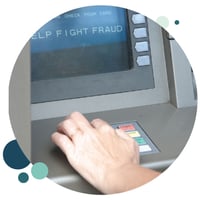 A fraudster doesn't have to physically steal your debit or credit card to retrieve your card information and access your bank account funds. The fraudster can retrieve your card information through Phishing emails, Spyware, websites, Wi-Fi networks, ATM skimming, or even going through your trash. When getting a credit or debit card, ask the financial institution about fraud liability protection. If the institution has it, you may not have to repay what was stolen if you're a victim of fraud.
A fraudster doesn't have to physically steal your debit or credit card to retrieve your card information and access your bank account funds. The fraudster can retrieve your card information through Phishing emails, Spyware, websites, Wi-Fi networks, ATM skimming, or even going through your trash. When getting a credit or debit card, ask the financial institution about fraud liability protection. If the institution has it, you may not have to repay what was stolen if you're a victim of fraud.
QUICK TIP: Skimming is a way fraudsters can obtain your personal data from an ATM or a merchant's establishment simply through a magnetic strip on your debit or credit card. |
mail fraud
This could mean stealing and opening someone else's mail to gain personal information or by sending out a chain of letters to collect funds. If you receive a letter in the mail asking you to send money, make sure the company information they provide is legit. You can do this by verifying the phone number and mailing address. When in doubt – contact the company by a means you recognize to confirm the validity.
online fraud:
According to fbi.gov, internet fraud is the use of services or software with internet access to take advantage of victims. Here's a look at the high-profile methods fraudsters use to take advantage of victims Learn More >
what are some ways financial institutions secure accounts?
 I mentioned you can’t solely rely on a financial institution's security services to help protect your money and identity, but that doesn’t mean you shouldn't know what they offer. Make sure your financial institution has protections in place against fraud. If not, take your money elsewhere... fast!
I mentioned you can’t solely rely on a financial institution's security services to help protect your money and identity, but that doesn’t mean you shouldn't know what they offer. Make sure your financial institution has protections in place against fraud. If not, take your money elsewhere... fast!
Since fraud is so broad and there are various ways fraudsters can take advantage of a customer's account, it’s hard to disclose a bank's process when helping a customer who’s a victim of fraud. Typically, banks start fraud investigations with a request from the customer.
For example, with credit card fraud, some banks provide a specific time frame to complete the fraudulent investigation (typically between 10 - 45 days). Generally, banks temporarily refund the customer's funds that are in question of dispute. Psst... During the window of the investigation, if the bank investigation shows negligence on your end, you may be liable for part or all the loss. So make sure you review your credit card and bank statements carefully and often.
QUICK TIP: If you find any unauthorized transactions in your account, contact your bank right away. |
Things to look for in a financial institution's account security:
- Online and Mobile Banking Security Features: This can include being automatically timed out of your account after a certain amount of time, facial recognition or other biometric measures to log into your mobile app, alerts for log-ins, and more.
- Identity Theft Protection Programs: Damage caused by the theft of personal information can be extensive, and recovering can cost a substantial amount of both time and money. Not to mention the negative impact on your credit and reputation it can cause. Some institutions will provide services or benefits through their accounts to help with Identity Theft.
- Card Protection Services: Financial institutions should also have robust card protection services available like Alerts and Flagging Fraud. For example, Skyla cardholders receive a text alert about any transaction flagged as a fraud on debit or credit cards. Psst... Skyla’s messages will never ask for your PIN or account number!

 how can i keep my accounts safe from fraud?
how can i keep my accounts safe from fraud?

Like I mentioned before, financial institutions cannot guarantee your finances won't ever get hacked or you won't get swindled by a fraudster. Although they have safeguards in place to protect your money and personal information, you need to be vigilant in your actions too. Here are some tried and true tips you definitely should practice when protecting your money and your personal information:
Identity Theft Protection Tips
Damage caused by the theft of personal information can be extensive, and recovering can cost a substantial amount of both time and money. Not to mention the negative impact on your credit and reputation it can cause. While identity theft can happen to anyone, there are some things you can do to reduce your risk:
- Review your credit card and bank statements carefully and often.
- Know your payment due dates - if a bill doesn't show up when you expect it, look into it.
- Read the statements from your health insurance plan and make sure the claims paid match the care you received.
- Shred any document that contains personal and/or financial information.
Review each of your 3 credit reports at least once a year. Visit annualcreditreport.com to get your free reports. Psst...If you need help handling the process of recovering from identity theft, the Federal Trade Commission has created step-by-step instructions.
password tips
- Don’t share your user ID or password with anyone, and never leave this information in an easy-to-find place.
- Create a unique user ID and password for each site.
- Don't use the same identifying information on multiple websites. Create strong user ID’s and passwords – use a combination of upper case and lower case letters, numbers, and special characters (!@#$%^&*)
- Change your passwords often.
Website tips
- Monitor your account activity frequently (if you're a member, make it even easier by signing up for Skyla's Alerts to help you be proactive).
- Log off from a website – don’t just close the page or “X” out
- Secure websites start with https (rather than http). If you don't see this in the URL, that means the site is not genuine - do not log in or conduct business on that site!
- When completing financial transactions, verify encryption and other security methods are in place, protecting your account and personal information.
mobile tips
- Don’t save your password in the app or anywhere on your phone
- Always use official app stores to download any app
- Review the permissions required for downloadable applications and don't accept permissions or download apps that ask for access not necessary for their function.
- If your device supports storage encryption, make sure it's turned on.
- Disable Bluetooth when not in use and - when in use - set it to “hidden mode”
- Require authentication on your device and follow the password security tips above
- If your device is ever lost or stolen, contact Skyla immediately at 704.375.0183 to disable access from that device and secure your accounts
computer/network tips
- Install quality security monitoring software – anti-virus, anti-spyware, and other internet security software – on your personal computer (and make sure you keep it up-to-date!).
- Take advantage of your computer’s security features.
- Keep your operating system security up-to-date by applying patches and updates.
- Password-protect your computer network (physical or wireless)

Want to know how to practice financial safety online? Read our article about How to Protect Your Accounts from Online Scammers.
once you start being vigilant, here's what you can expect:
It's vital you constantly practice safeguarding your money, identity, and other valuable assets using the tips above. Why? Because there's a huge chance for you to catch any fraudulent activity that could happen to you before the bank catches it. Plus, fraudsters have leveled up their intelligence to the point where they can trick you into sending money without alerting the bank.
Once you know the signs of fraud and practice protecting yourself, you can eliminate any chances of being a victim. Here's a fraud blog by fraud expert Frank McKenna. I personally think the blog is educational and will keep you on your toes with the numerous topics of fraud.
You can also always read more about Account Security and Identity Theft on the Skyla website. If you have any other questions, feel free to contact our customer service representatives by email, give us a call at 704.375.0183, or visit a branch.
As Content Strategist behind the Learning & Guidance Center, Yanna loves showing just how doable finance can be. Whether it’s simple tips, step-by-step guides, or comparison charts, she’s passionate about helping readers take charge and reach financial freedom with confidence
more resources for your financial journey
How to Keep Your Money Safe From Online Scammers
Can you tell if you’re being scammed? In this article our IT Security Analyst shares tips for online safety, how to identify a scam, and more. Check how you can protect your money online here.
7 min. read
Is My Money Safe at a Credit Union?
Don't know if your money is safe at a credit union? Here's how they protect their member's money, similar to banks.
4 min. read
